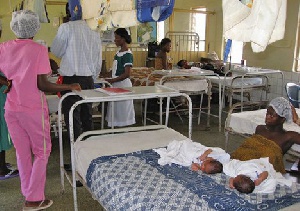 The three-child policy would be effective only if government is ready to invest in the programme
The three-child policy would be effective only if government is ready to invest in the programme
Madam Elizabeth Agbo, Senior Midwifery Officer, Ho Municipal Hospital, said the National Population Council’s (NPC) proposal of a three-child policy would be effective only if government is ready to invest in the programme.
She said Family Planning (FP) methods are a sure way of putting a cap to the number of children a couple could have but it was currently facing challenges of funding and misconceptions.
Madam Agbo said investments in such a policy should not be a one-time off approach as in the case of similar projects to ensure that set goals are achieved.
She said though a good number of people were on FP methods, vast majority who were poor and tended to have more children were in villages and hard-to-reach communities.
Madam Agbo said aside “ignorance”, misconception on the side effects of FP methods have become a major challenge at achieving the aim of controlling births and improving quality of life and called on traditional leaders and husbands to help women make the life changing choices.
A senior medical practitioner who spoke on anonymity said if the country prioritized improving quality of life of its citizenry, population growth would adjust itself automatically.
He said the country’s resources were already “stretched thin” to introduce reward packages for families who would initiate FP.
Dr Leticia Adelaide, the Executive Director of the NPC, last week proposed a three-child policy per couple to manage Ghana’s growing population and ensure rapid socioeconomic development.
At a meeting with the Public Accounts Committee of Parliament, she argued that the country’s population growth rate of 2.5 per cent annually for the past three decades as against the global acceptable rate of 1.5 per cent annually was alarming.